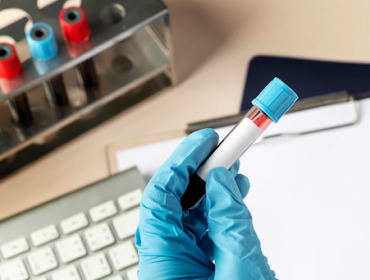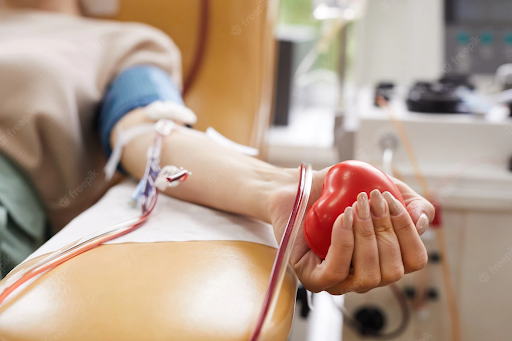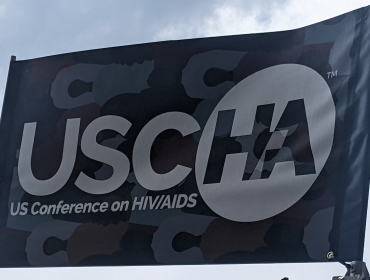Can You Donate Blood if You Have an STD?
Can You Donate Blood If You Have Herpes?
If you have an STD, you may be wondering if you can donate blood. The answer is usually no; most STDs can be transmitted through blood and/or are not detectable through the current screening process. However, there are certain exceptions to that rule, so let’s take a closer look at which STDs will keep you from donating blood and why.
Some STDs are transmissible through blood transfusion.
You can donate blood if you have an STD, but it’s only possible in certain cases.
Can you donate blood if you’re HIV positive?
While it’s true that some infections are transmissible through blood transfusions, and the risk is usually very low, it’s important to understand that this is a rare occurrence. The most common STDs that are transmissible through blood transfusions include HIV (human immunodeficiency virus), Hepatitis B and Hepatitis C, syphilis, HTLV-1 (human T-cell lymphotropic virus type 1) and other viral pathogens such as West Nile Virus.
Transmission of STDs through blood transfusions is very rare because the screening process for donors includes questions about your medical history as well as testing for infectious diseases like HIV/AIDS. In fact, according to Donate Life America: “Blood donations in the U.S. are currently screened for more than 60 different infectious agents at our nation’s blood banks and transfusion centers – but there is no test available today that can detect all possible infectious agents.”

Blood banks screen for some STDs before you are allowed to donate blood.
Do They Test For STD When Donating Blood?
Now that you know some of the reasons why blood banks screen for STDs, you may be wondering whether it’s possible to donate if you have an STD. The answer is yes, but there are some things to keep in mind. Most important of these is that screening for STDs is not 100% effective—which means that it’s still possible for a person with an STD to donate blood and pass on their infection.
Screening is only meant to protect the blood supply and those who use it: donors themselves can get infections from donating, which makes them ineligible; while recipients could contract a new infection if they receive infected blood.
In addition to protecting the health of everyone involved in transfusions, including yourself should you need one someday (you never know when an accident might happen!), keeping screenings up-to-date helps keep your local hospital running smoothly by preventing any outbreaks from spreading through their facilities or equipment used during transfusions.
The test for syphilis may not detect it early enough.
Although the blood test for syphilis is 99% accurate, it can be difficult to detect early-stage symptoms of the disease. If you have had a blood test and it came back negative but you think you might still have syphilis, your doctor may recommend repeating the test or using other tests to look for signs of this disease.
One reason why many people delay getting tested for STDs is because they don’t want to know what their diagnosis will be. However, if you are able to get tested sooner rather than later, there are ways that your doctor can help make sure that any treatment plan includes all possible symptoms due to your infection.
At two weeks after exposure, a syphilis test will be extremely accurate.
Blood banks don’t test for herpes, yeast infections or genital warts.
Can I donate blood if I have herpes?
Can people with herpes donate blood? There are many reasons why you may be able to donate blood, even if you’ve had an STD. For example, blood banks don’t test for herpes, yeast infections or genital warts. So if you have one of these conditions and want to donate blood anyway, go ahead! Herpes and genital warts cannot be spread through blood transfusion. To donate with herpes, you have to not be having an outbreak or it’s been 48 hours or more since completing an antiviral treatment.
Can you donate blood with herpes?
Though yeast infections are not an STD, many think they might be the result of an STD. They are similar to the discharge and painful swelling from chlamydia and gonorrhea. But there are some differences. It is hard to tell the difference to the naked eye, so getting tested is the ultimate fail safe. Our tests will be able to let you know exactly what is going on and whether it is a yeast infection or something else.
You can be excluded from donating blood if you have had a serious STD in the past 12 months.
When you donate blood do they test for STDs?
If you have had a serious STD in the past 12 months, you may be excluded from donating blood. In this case, your local blood bank will most likely ask you not to donate blood if:
- You have had an STD and recovered
- The time of your last infection or treatment is unknown
If this applies to you and are still interested in donating, contact your local center and make sure they can accommodate your donation. As stated earlier, there are exceptions to this, so call your local blood bank to make sure you can donate or not.
Even if you had an STD and recovered, the blood bank may still ask you not to donate blood.
Each blood bank is different, and while it may be safe for you to donate blood, there are different rules and restrictions for different donation centers. If you had an STD and recovered, the blood bank may still ask you not to donate blood. Blood banks are more concerned about future infections than past ones. They don’t want to take the risk of you passing on an infection. This is why they ask people to wait 12 months after recovering from an STD before donating blood again, even if it was cured during that time period. They want to be sure you are not still infected or contagious, so they will test your blood for HIV/AIDS and other STDs after your first donation in order to determine if further donations are allowed by law or policy at that facility (or any other one).
Blood banks do their best to keep donated blood safe, but they only screen for certain diseases.
You can still donate blood, but you’ll have to make sure your STD is not one of the ones that blood banks test for.
Blood banks do their best to keep donated blood safe, but they only screen for certain diseases. That’s because there are many STDs. The more you know about the different diseases and how they affect your body, the better off you’ll be when trying to donate blood.
The most common way of testing donation samples is by looking at a sample of your blood under a microscope. The microscope looks at cells inside your body and makes sure they’re healthy before letting them into someone else’s bloodstream through their veins or arteries (the pipes that carry oxygen-rich blood throughout our bodies). If there are any signs of sickness in those cells like HIV or syphilis, then it will be easy for doctors and nurses to see them and know that something isn’t right with that person’s health—and stop giving them transfusions until they get better!

Conclusion
As we’ve seen, it’s important to be honest with blood banks when you go in to donate blood. They need this information in order to make sure that the blood donors and the people receiving the blood are both kept safe from STDs. Though some diseases can be transmitted through donated blood, there are safeguards in place to prevent this from happening. Can you donate blood if you have herpes or another STD? We hope this article answers your query.
The bottom line is that STD status does not automatically exclude you from giving blood—but if you have an STD, it’s your responsibility to keep the staff at the donation center informed.
Medically Reviewed by J. Frank Martin JR., MD on June 22, 2022
Secure and Confidential
STD testing services
The fastest results possbile - available in 1 to 2 days

Tagged
Categorized As
Author: Esther Jordan
Esther Jordan has been a writer ever since she can remember. She has always loved the free gift of self-expression through journaling, creating stories, and sharing life experiences in front of audiences. Public speaking and creating content has been a strong suit of hers since high school. Immediately after college, she received a paid position as an search engine optimization (SEO) writer in 2010 when SEO was still a very brick and mortar concept for a lot of small businesses. It was a time of do-it-yourself websites and online magic that everyone wanted and either referred to it as SEO or pay-per-click (PPC).




